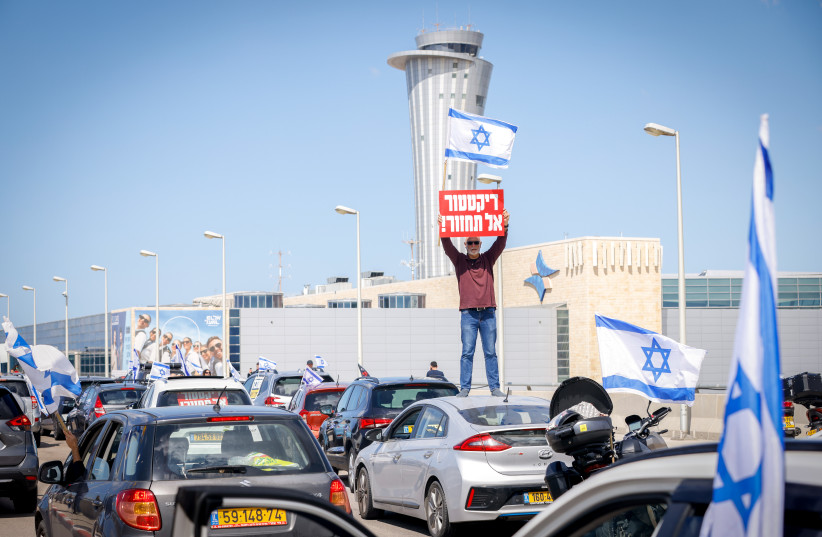As The Jerusalem Post’s Seth Frantzman recently observed, chaos and confusion often precede healing and understanding. We are facing a crisis in our society fueled by long-standing disputes about our direction as the nation-state of the Jewish people. Our fundamental values, however, should never be forgotten or taken for granted. Both sides essentially claim to represent those values, and our raison d’etre. That’s why judicial reform is the focus and the symbol of this struggle.
My assumption, based on public declarations, is that both sides are concerned about having a Jewish and democratic state. That is what Yoram Hazony wrote about in his book, The Jewish State: The Struggle for Israel’s Soul. We need to pay attention to what that means.
Those who call for civil war, insurrection and overthrowing the elected government by force and intimidation, threaten our essential values and the bonds that unite us as a society and our nation-state. Disrupting transportation, closing roads and attacking others is nihilistic and chaotic. Their goal is, “my way, or the highway.” That does not promote values, or creativity; it is incoherent. Protests must be responsible, not wild rampages.
Protests are important, but many ask, what is the goal? What are you willing to compromise? What are your positive suggestions? Where is mutual respect? Where is the dialogue? What are your priorities? How do we protect and preserve our Jewish and democratic state?
We want a government “of the people, by the people and for the people.” That is what makes a government legitimate and worthwhile. That is our struggle; how do we achieve it? We have a Knesset that is responsible for passing laws and upholding our freedom and ministries and institutions that enable our democratic system. Is something missing?

It's good to be passionate
It’s good to fight for what you think is right. It’s good to be passionate, and to protest, but then what? The real struggle is not over judicial reforms and Israeli democracy. It’s about the other agenda of our government: extending Israeli sovereignty in Judea and Samaria, expanding Israeli settlements, and establishing civilian law there. It’s about “belligerent occupation” – as the Supreme Court calls it – in the heartland of the Jewish People, and a Palestinian state led by terrorist organizations.
As highly respected social scientist Ori Wertman wrote on these pages (“Netanyahu is not the reason,” March 7), most Israelis have lost trust in state institutions, especially the Supreme Court, the police and the political system. Nearly all Israelis support judicial reform, in one form or another. The struggle is how to restore public confidence and reform the system. Opposing all judicial reforms and turning Israelis and the international community against the government harms us all.
We need to think about what makes life meaningful and fulfill the purpose for which we were created. We need to appreciate our accomplishments in rebuilding our homeland in Eretz Yisrael. We are “People of the Book,” Torah. We need to remember the words of the Prophet Isaiah: “Justice, justice shall you pursue.” May we live up to the vision of our Prophets and the historic tasks before us.
Protests must be constructive, not destructive.
The writer is a PhD historian.
